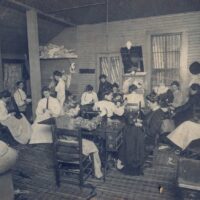When I heard this week that former sheriff Bill Dillard had died, the first thing that came to mind was a story about him that ran more than 35 years ago in the Louisville Courier Journal’s Sunday magazine.
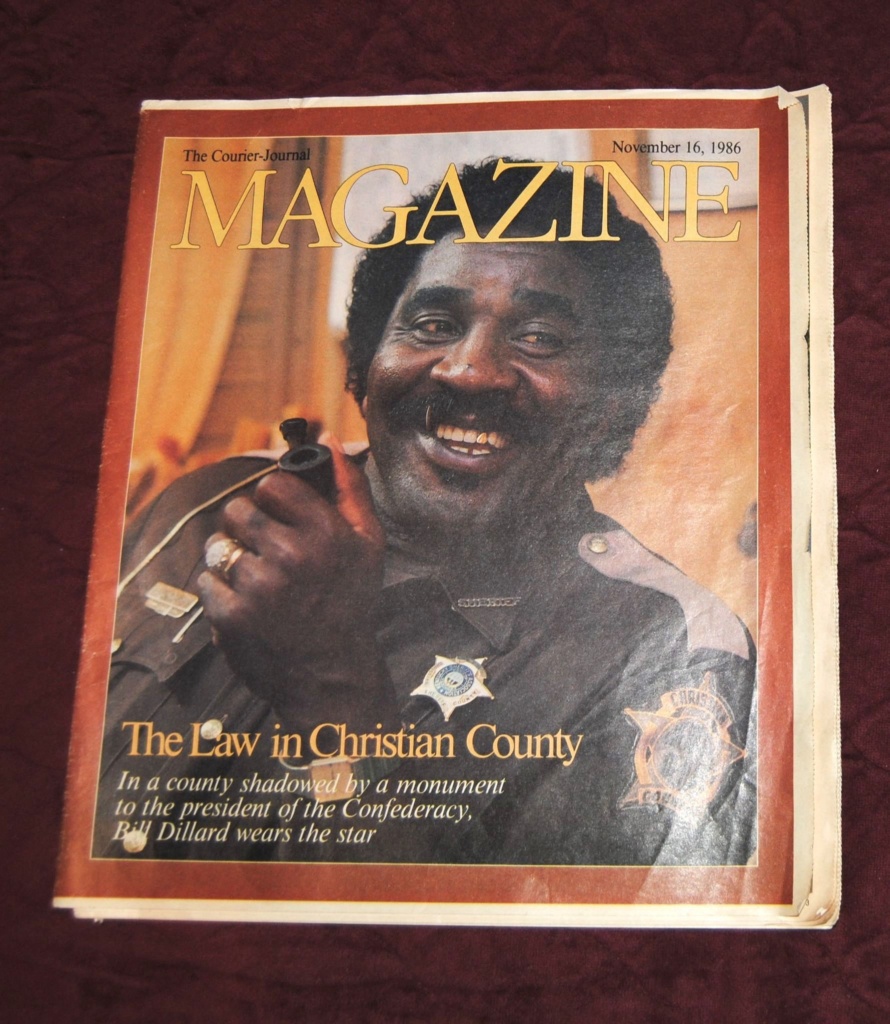
I’ve never forgotten the gist of a headline on the Nov. 16, 1986, cover story, which read, “In a county shadowed by a monument to the president of the Confederacy, Bill Dillard wears the star.”
A photo of Dillard, in his brown sheriff’s uniform with the badge over his heart, was featured on the front of the magazine. He held a pipe and smiled broadly.
“The voters of Christian County, Ky., are hard to figure,” began an introduction to the story. “Democrats outnumber Republicans 6 to 1, but the mayor of the county seat is a Republican. And five years ago the county George Wallace once carried in a presidential race chose the man in Pam Spaulding’s cover photograph to be, apparently, Kentucky’s first black sheriff.”
The Courier Journal had sent one of its best feature writers, C. Ray Hall, who grew up in Trigg County, down to Hopkinsville to profile the sheriff. Dillard was a year into his second term in office after being re-elected in the fall of 1985 with a lopsided victory over recently retired Kentucky State Trooper R.N. Ferguson, another lawman with an enormous reputation across the state.
The story on Dillard was big news in Hopkinsville. Everyone I knew talked about it — including my newsroom co-workers at the Kentucky New Era, where I had started my first full-time job early that year.
Retired New Era journalist Rob Dollar still has a copy of the magazine story, so he shot photos of the pages to send me when I asked for them a few days ago. (I wasn’t surprised Rob still had files with Dillard stories; he has saved countless old articles and photos from his newspaper days.)
It was hard to say which was larger, Dillard himself, or his personality. He stood a little over 6-foot-3 and weighed about 260 pounds when the Louisville paper profiled him.
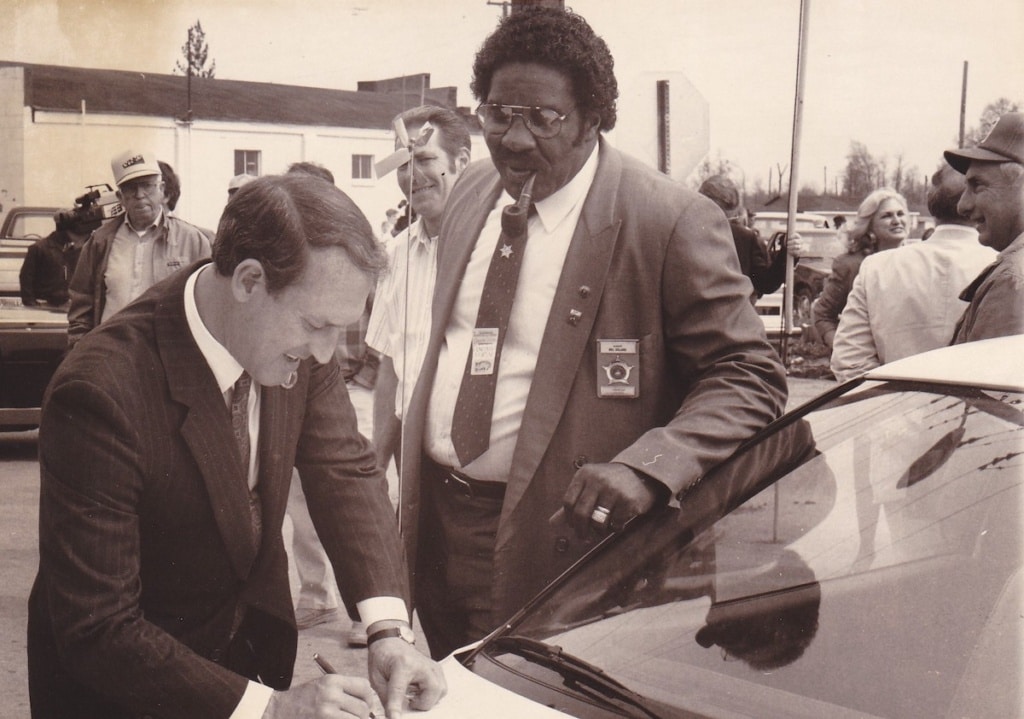
At Attucks High School, he had thought of becoming a pro football player and won a scholarship to play at Kentucky State University. But a knee injury ended his career as a freshman, and he headed back to Hopkinsville.
In 1958, Dillard got a job as a psychiatric aide at Western State Hospital. He worked on a maximum security ward, where the patients were more criminal than mentally ill, said Dillard. “It was an interesting job. You had to fight a lot,” he told the Courier Journal.
Around 1968, he went to work as a deputy at the Christian County Sheriff’s Department. He later worked for the Hopkinsville Police Department before returning to the sheriff’s department.
Dillard first ran for sheriff in 1981 and narrowly defeated Tommy Simpson. Four years later he won re-election, beating Ferguson 7,391 to 5,008, the Courier Journal reported.
He won both times with broad support from white voters. He had a reputation for being stern when the situation called for it. But he could be easygoing and funny, too.
I read a news brief that ran Sept. 29, 1986, in the Evansville Press newspaper, where Dillard was joking about how he needed to pick up a man in Missouri, who was wanted on a murder charge, and get him quickly to Christian County. Someone asked Dillard how quickly he could make the trip and he responded, “I guess it depends on how many police there are on the road.” If he were stopped, he said, “We’re going to try for immunity.”
That kind of banter was classic Dillard, in my memory, anyway.
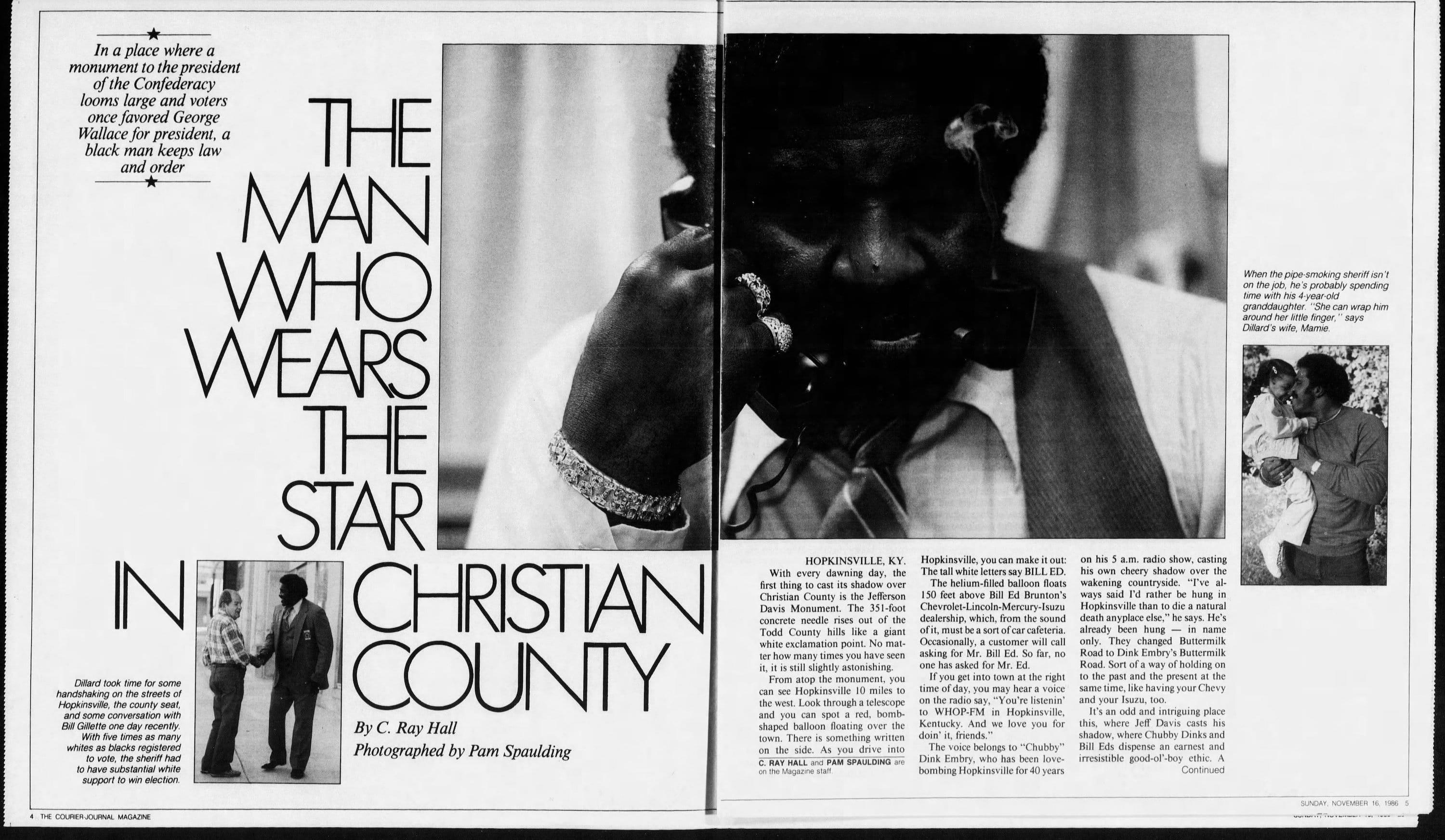
But Dillard’s popularity began to wane late in his second term.
In November 1988, a Christian County grand jury issued a report critical of the sheriff’s department. It alleged the department was not communicating well with other police agencies. The sheriff’s department was also accused of ignoring drug crimes in the county.
The primary election was months away, and Dillard said the report was politically motivated.
In May 1989, Dillard lost his reelection bid in a primary race to Tom Scillian, who would take office at the end of the year.
Then on Jan. 17, 1990, a federal grand jury issued an indictment charging Dillard with conspiring to distribute cocaine and with taking government money used in a drug sting operation. The charges stemmed from an investigation by the FBI and Kentucky State Police, who set up a fake business, Davis’ Electronic Repairs, on Susan Avenue (behind today’s Sonic Drive-In) in Hopkinsville. An undercover agent, George Davis, posed as the business owner making drug deals with Dillard and three other men, including two connected to the sheriff’s department.
Dillard maintained he was innocent and said he was conducting his own investigation into what he believed was a real drug operation.
In June 1990, he was convicted in federal court at Paducah and sentenced to nine years in prison, the New Era reported. He served time at federal prisons in Indiana and West Virginia, and later returned to Hopkinsville.
In a separate state case, Dillard was convicted on theft charges for receiving payment to provide after-hours security at the site of a 1988 train derailment and chemical spill near Crofton. The conviction was later overturned on appeal because state law allows a sheriff to accept payment for private security jobs.
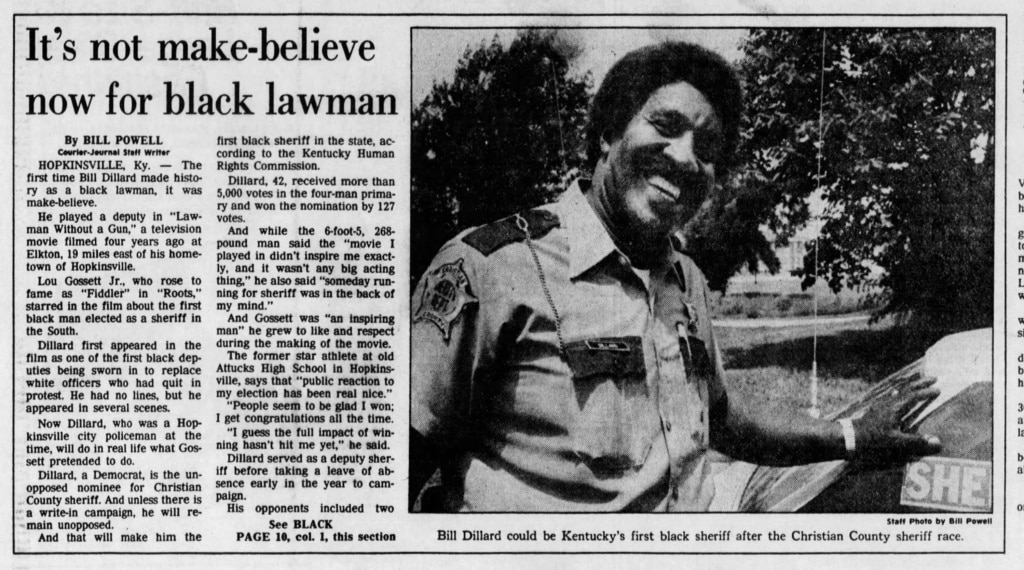
Today, younger residents and relative newcomers to Christian County have probably never heard of William Otis Dillard and they don’t know about his place in local and state history. He hasn’t been in the news in roughly 20 years.
But when Dillard died Tuesday at the age of 83, he remained one among a small number of Black residents who have won election to a top office in Christian County.
His biography is an entry in “The Kentucky African American Encyclopedia,” published by the University Press of Kentucky in 2015.
His distinction as the first Black sheriff in Kentucky was recalled by several news outlets this week.
(This column first ran in Hoptown Chronicle’s Sunday Brew newsletter. To get local columns delivered to your email every weekend, subscribe here.)
Jennifer P. Brown is co-founder, publisher and editor of Hoptown Chronicle. You can reach her at editor@hoptownchronicle.org. Brown was a reporter and editor at the Kentucky New Era, where she worked for 30 years. She is a co-chair of the national advisory board to the Institute for Rural Journalism and Community Issues, governing board past president for the Kentucky Historical Society, and co-founder of the Kentucky Open Government Coalition. She serves on the Hopkinsville History Foundation's board.


